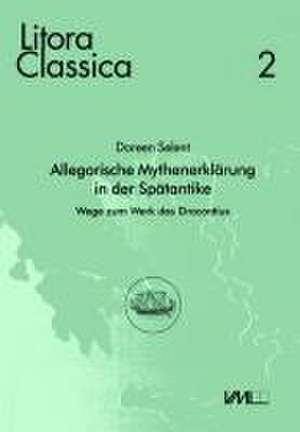Allegorische Deutung und Dichtung in der Spätantike: Litora Classica, cartea 2
Autor Doreen Selenten Limba Engleză Paperback – mar 2011
Preț: 269.79 lei
Nou
Puncte Express: 405
Preț estimativ în valută:
51.63€ • 53.26$ • 43.08£
51.63€ • 53.26$ • 43.08£
Carte indisponibilă temporar
Doresc să fiu notificat când acest titlu va fi disponibil:
Se trimite...
Preluare comenzi: 021 569.72.76
Specificații
ISBN-13: 9783867574723
ISBN-10: 3867574723
Pagini: 365
Dimensiuni: 154 x 221 x 28 mm
Greutate: 0.74 kg
Editura: VML Verlag Marie Leidorf
Seria Litora Classica
ISBN-10: 3867574723
Pagini: 365
Dimensiuni: 154 x 221 x 28 mm
Greutate: 0.74 kg
Editura: VML Verlag Marie Leidorf
Seria Litora Classica

